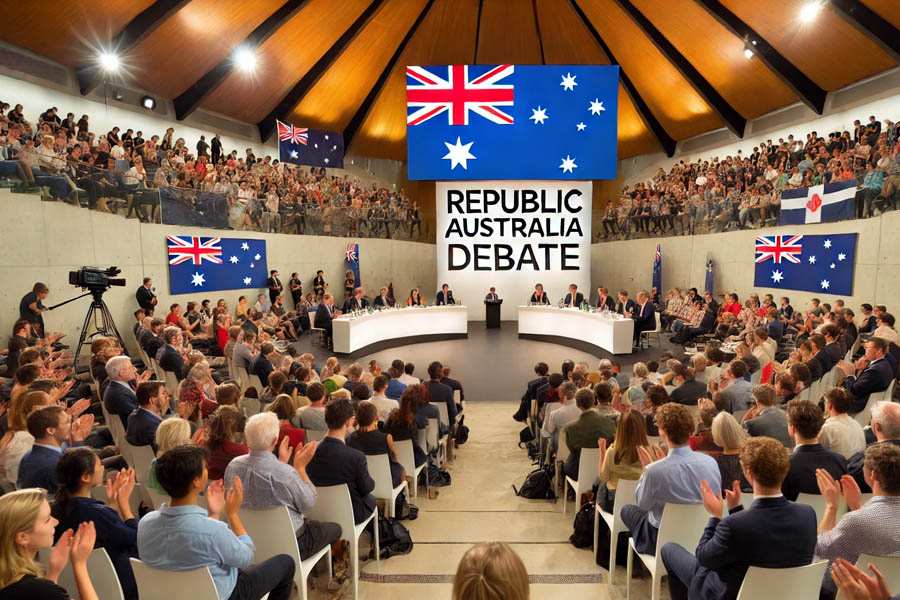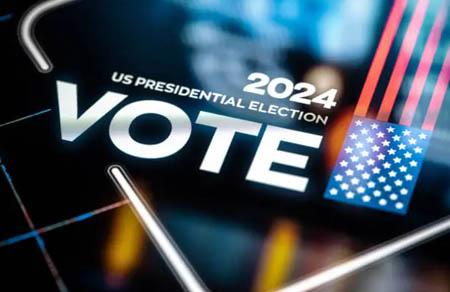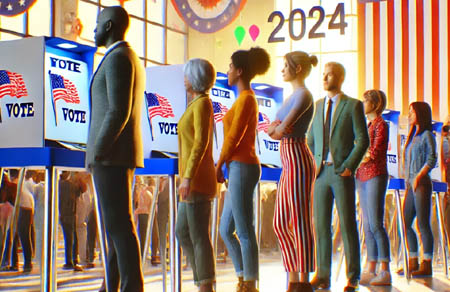
Green Light on the Horizon for Australia to Become a Republic? | Future of Australian Monarchy
13-Oct-2024As Australia prepares for a royal visit from King Charles III and Queen Camilla this month, the longstanding debate about whether the nation should transition into a republic is back in the spotlight. The royal tour, scheduled from October 18 to October 23, comes amid calls for Australia to reconsider its ties to the British monarchy. Although the government has put a referendum on hold, advocates for an Australian republic continue to push for change, emphasizing that the future of the monarchy is a decision for the Australian people.
The Royal Visit: King Charles and Queen Camilla in Australia
King Charles III, making his 16th visit to Australia and his first as reigning monarch, will begin the trip on October 18. This visit holds particular significance for the King, who is currently undergoing treatment for cancer. The five-day trip will include personal rest, as well as a number of public events aimed at strengthening ties between the UK and Australia.
One of the key highlights of the royal itinerary will be a community barbecue in Western Sydney, where First Nations representatives will meet the King and Queen. Official duties will follow on Monday with a wreath-laying ceremony at the Australian War Memorial in Canberra, honoring the country’s fallen soldiers. The royal couple will also attend an official reception at Parliament House, where they will meet politicians, community leaders, and prominent Australians.
Despite the focus on ceremonial events and public engagements, the backdrop of the visit includes a renewed push for Australia to become a republic. Ahead of the King’s trip, Buckingham Palace reiterated that the decision of whether Australia remains a constitutional monarchy or transitions into a republic is solely up to the Australian public.
The Republic Debate: A Long-Standing Conversation
Australia has grappled with the question of republicanism for decades. The most recent referendum, held in 1999, saw Australians vote to remain a constitutional monarchy. However, the issue has never fully disappeared from the public discourse. Earlier this year, the Australian Republic Movement exchanged letters with Buckingham Palace, reinforcing that the decision lies with the Australian people.
As King Charles prepares to meet with Australians across the country, republicans, including Isaac Jeffrey of the Australian Republic Movement, are eager to voice their views. "While we respect the role the royals have played in the nation to date, it’s time for Australia to elect a local to serve as our head of state," said Jeffrey. His comments reflect a growing sentiment among many Australians who feel that the monarchy, while historically significant, may not align with the nation’s modern identity.
A Pause on the Republic Referendum
Despite the renewed calls for a republic, the Australian government has indicated that a referendum on the matter is "not a priority." The government, led by Prime Minister Anthony Albanese, is currently focused on addressing pressing issues like cost-of-living concerns, inflation, and rising interest rates. Assistant Minister for the Republic Matt Thistlethwaite recently affirmed that while the Labor Party remains committed to the idea of a republic in the long term, there is no set timeline for when such a vote might occur.
The push for a republic is not unique to Australia. New Zealand’s opposition leader, Chris Hipkins, has expressed similar sentiments about eventually breaking away from the monarchy. Meanwhile, Barbados became the world's newest republic in 2021, severing its ties with the British crown but remaining within the Commonwealth.
King Charles’ View on the Republic
King Charles III has remained neutral on the issue, as is the role of a constitutional monarch. In correspondence with the Australian Republic Movement, the Palace reiterated that the decision on whether to become a republic is entirely up to the Australian people. While the King has expressed deep affection for Australia, his position remains clear—he will act according to the will of the people, whatever that may be.
What Lies Ahead?
As King Charles and Queen Camilla's visit approaches, the republic debate is sure to resurface in public discussions. While a referendum is not on the immediate horizon, the question of whether Australia will one day sever its ties to the monarchy continues to linger. With many prominent Australians, including actor Hugh Jackman, supporting the idea of a republic as a natural evolution for the nation, it remains to be seen when the country will revisit the conversation.
For now, the King’s visit serves as a reminder of Australia’s deep ties to the British monarchy—a relationship that continues to evolve as the country navigates its future. Whether or not Australia decides to become a republic, the King's message is clear: it’s up to Australians to shape their own destiny.
Q&A About the Australian Republic Debate Amid King Charles III's Australia Visit
Q: What is the significance of King Charles III's visit to Australia in 2024?
A: King Charles III's visit from October 18 to October 23, 2024, marks his first trip to Australia as the reigning monarch. This five-day tour includes engagements in Sydney and Canberra, symbolizing the enduring ties between Australia and the British monarchy. The visit is particularly significant as it occurs amid ongoing debates about Australia's potential transition to a republic.
Q: Why have Australian politicians refused to meet King Charles III during his royal tour?
A: Recent reports indicate that no State Premier will greet King Charles III and Queen Camilla at a reception in Canberra, which some interpret as a political snub. This refusal has been described as a "slap in the face" by commentators, reflecting the tensions surrounding the republican movement and dissatisfaction among some politicians regarding the monarchy's role in Australia.
Q: How has King Charles III's health impacted his Australia visit?
A: King Charles III has been undergoing cancer treatment, which has influenced the itinerary of his Australia visit. A designated personal rest day on Saturday has been included to accommodate his health needs, ensuring he can pause his treatment during the trip. Additionally, he will be traveling with two doctors and a spare supply of blood to manage his health proactively.
Q: What is the Australian Republic Movement's stance on the monarchy during King Charles III's visit?
A: The Australian Republic Movement continues to advocate for Australia to become a republic, arguing that the nation should elect its own head of state rather than retain the British monarch. During King Charles III's visit, they have emphasized that the decision to remain a constitutional monarchy or transition to a republic should be determined by the Australian people, not by the monarchy itself.
Q: Has the Australian government prioritized a referendum on becoming a republic?
A: No, the Australian government, led by Prime Minister Anthony Albanese, has placed the republic referendum on hold. A government minister recently stated that holding a vote on removing King Charles III as head of state is "not a priority" at the moment, citing pressing issues like cost-of-living concerns, inflation, and rising interest rates as higher priorities for the administration.
Q: What were the results of the last Australian republic referendum held in 1999?
A: In the 1999 referendum, Australians voted to remain a constitutional monarchy, rejecting the proposal to establish a republic. This decision has left the debate unresolved, with republican advocates continuing to push for another referendum to reconsider the nation's head of state.
Q: How has public opinion in Australia shifted regarding the monarchy and republicanism?
A: Public opinion in Australia remains divided on the monarchy versus republicanism debate. While the 1999 referendum saw a majority voting to stay with the monarchy, recent years have seen increased support for a republic, particularly among younger Australians and those who feel a local head of state would better represent the nation's identity and interests.
Q: What are some arguments in favor of Australia becoming a republic?
A: Proponents of a republic argue that Australia should have its own elected head of state to better reflect its national identity and independence. They believe that a locally chosen president would be more in tune with Australian values and societal changes, enhancing national pride and sovereignty without colonial ties.
Q: How has the media portrayed King Charles III's visit in relation to the republic debate?
A: Media coverage of King Charles III's visit has often highlighted the juxtaposition of the royal tour with the ongoing republic debate. Headlines and reports emphasize the tensions between the monarchy's traditional role and the rising republican sentiment, portraying the visit as a catalyst for renewed discussions about Australia's future governance structure.
Q: What impact might King Charles III's visit have on the future of the monarchy in Australia?
A: King Charles III's visit could reignite the debate on Australia's constitutional status, drawing public and political attention to the monarchy's relevance in modern Australia. The visit may influence public opinion, either reinforcing support for the monarchy through positive engagements or galvanizing republican supporters to advocate more vigorously for a referendum on becoming a republic.
Tags: #AustraliaRepublic #KingCharlesVisit #AustralianRepublicMovement #MonarchyDebate #RepublicanAustralia #ConstitutionalMonarchy #RoyalVisit2024 #AustralianPolitics #FutureOfAustralia #RepublicReferendum
Thank you for reading: Globalpostheadline.com





